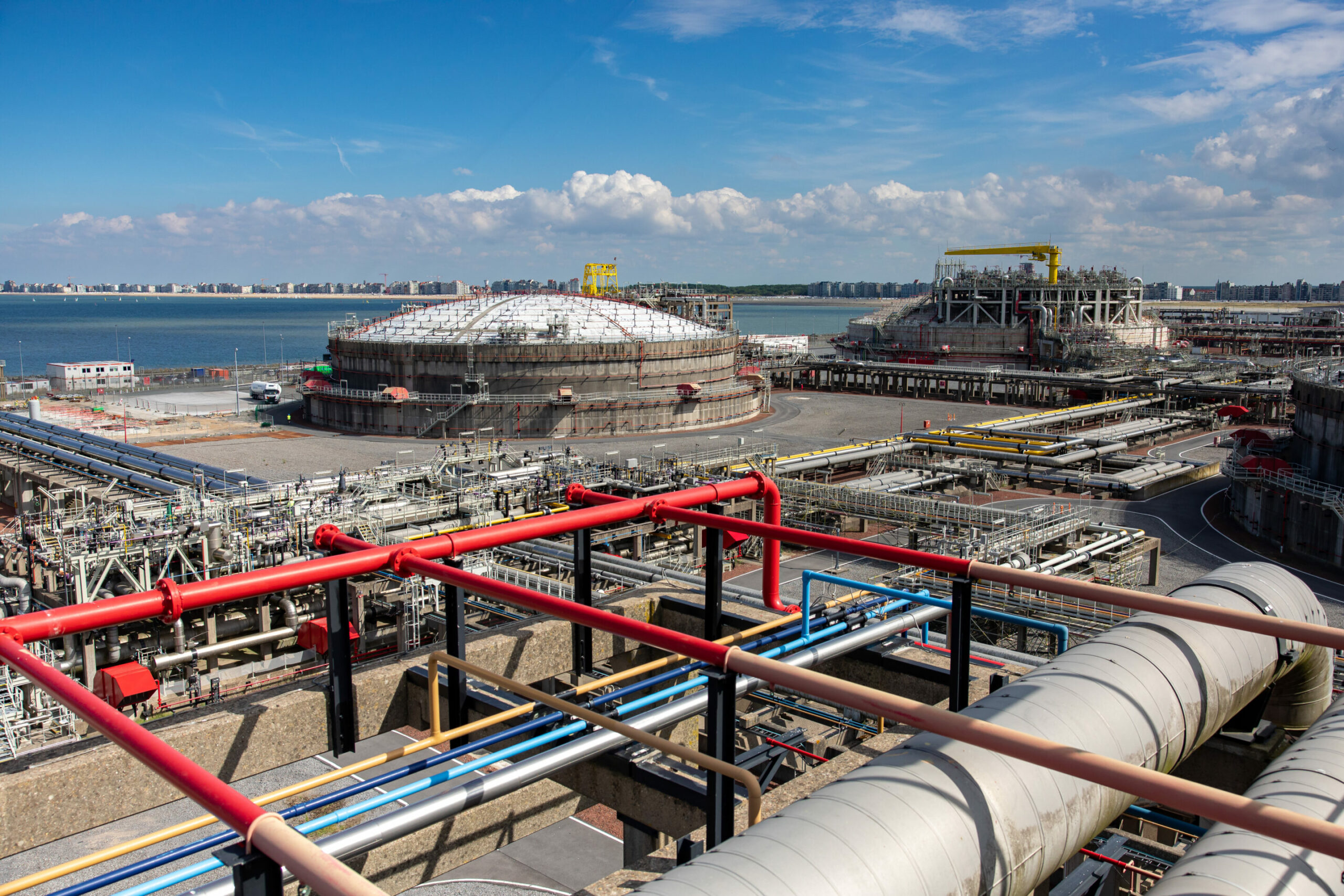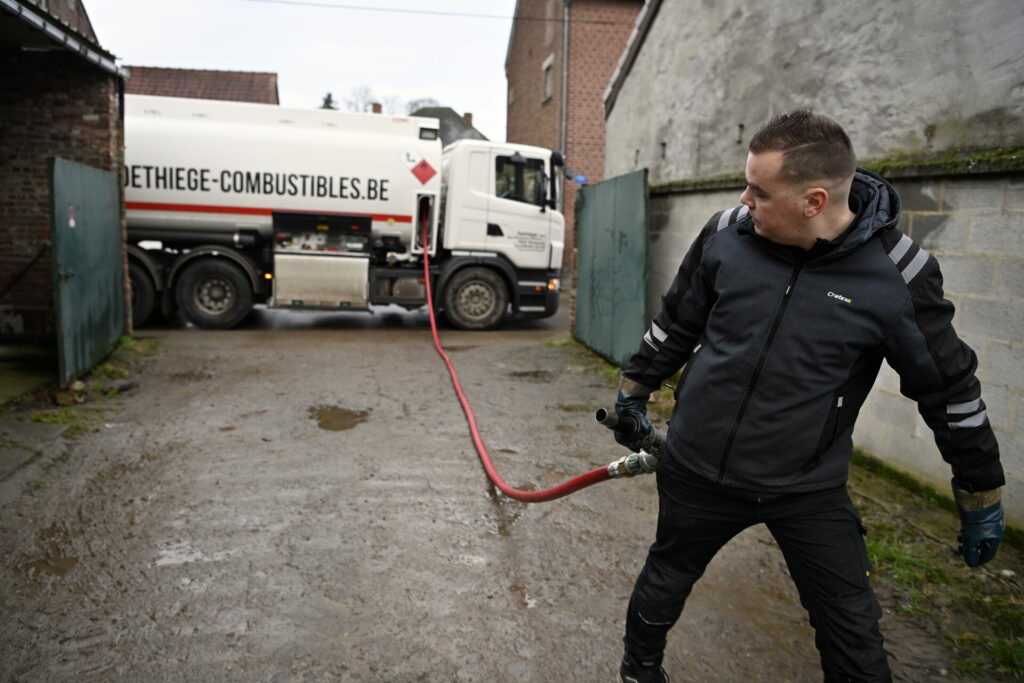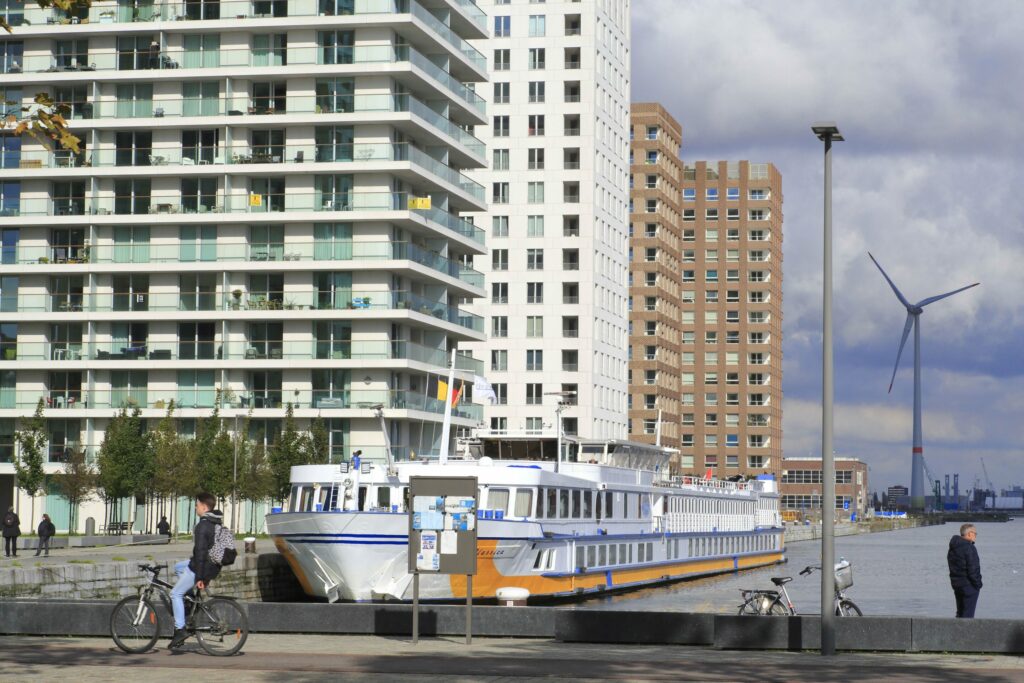The new EU emissions system (ETS2) for the heating of buildings and road transport could lead to an increase of hundreds of euros on average households' natural gas bills, according to a new study.
To reduce harmful emissions of CO2, the European Union introduced in 2005 what is known as the Emissions Trading System (ETS). Under these rules, airlines and certain factories, for example, must pay for the CO2 emissions they produce. This is carried out with set allowances to cover their emissions: the more a company emits, the more allowances it has to purchase. Indirectly, the price of those emissions is already factored into the price of a plane ticket, for instance.
From 2027, however, a similar system (ETS2) will be introduced speficially for buildings, road transport and additional sectors (mainly small industry not covered by the existing EU ETS). Suppliers of natural gas and fuel oil, as well as petrol and diesel, will have to buy emission rights for the CO2 emissions caused by 'their' fossil fuels.

The Fluxys LNG-terminal (liquefied natural gas) in Zeebrugge. Credit: Belga / Kurt Desplenter
In turn, however, suppliers will pass on (most of) this extra tax to their customers: households using natural gas or fuel oil to heat their homes, and everyone driving on petrol or diesel. Here too, the number of emission allowances will fall to reduce emissions: they must fall by 42% by 2030 (compared to 2005).
Now, a new study by the Swiss University of Basel, the University of Stuttgart and Germany's Potsdam Institute for Climate Impact (PIK) calculated how big the exact impact of that new system would be.
How sharply the gas bill or the price at the pump will go up will depend on the exact price of the emissions allowances. According to the EU, companies will have to pay between €45 and €80 per tonne of CO2 emissions in the first few years.
€812 extra per year
From 2030, a number of restrictions on the system will fall away – allowing the price for emission rights to rise sharply. Projections show that the price for emission rights could reach €200 per tonne of CO2 by 2030. "That corresponds to €812 extra per year for an average family heating on natural gas," Ruben Baetens of the Research Institute for Energy and Society at KU Leuven, told Het Laatste Nieuws.
For fuel oil, that means an extra €0.62/L – resulting in an additional cost of €620 on a 1,000-litre order. For petrol and diesel, half a euro per litre would be added at the pump, meaning that filling up a 50-litre tank would cost €25 extra.
As the majority of households in Belgium currently heat their homes with natural gas, they will have to pay significantly more. "An average family heating with gas will have to pay more than half extra on an annual basis," Baetens said. "This is coming our way, but little is communicated from the political side. Even though people need to know about it."
The scheme aims to get households and businesses to switch to less polluting options, such as electric cars and heat pumps to heat their homes. "Whether the plan will be definitively implemented will be decided in 2026. But European policy is clear: they want people to stop heating with natural gas," Baetens said.

Credit: Belga/Eric Lalmand
However, it is uncertain whether that switch will be fast enough to bring down the price of emission allowances. Additionally, experts are worried that especially the most vulnerable people in society risk being left with the heaviest bill.
"This is of course all very sensitive. If this is organised badly, new yellow-vest protests are very likely," he added.
"At the same time, the revenues from the emission rights flow back to the EU Member States and regions. The EU requires them to use that money to support families and organisations affected by it. A quarter of the money must also go to a social climate fund, which supports socially disadvantaged people."
The establishment of that fund is also included in the new Flemish Government's coalition agreement.
"Everyone should realise that this is coming," Baetens said. "Especially those who are facing a renovation or need to replace their gas boiler in the next few years will be faced with an important choice. You might put in a new gas boiler in 2027, which will have become too expensive to use in 2030."
While he stressed that a shift from natural gas to electricity is good in itself, the problem is that Belgian policy has been promising it for a decade, "but has still not implemented it. That is why public confidence is currently very low."

